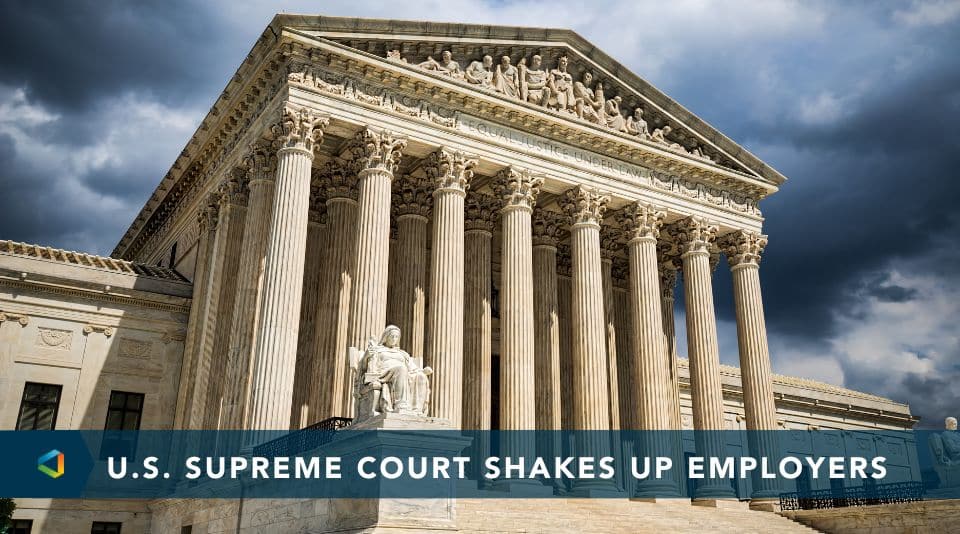On Wednesday, June 26th, the U.S. Supreme Court, in United States v. Windsor, found unconstitutional Section 3 of the federal Defense of Marriage Act (DOMA), which had prohibited the federal government from acknowledging marriages between same-sex couples. The decision overturned a key provision of DOMA that defines marriage as between a man and a woman, and spouses as heterosexual. In the 5-4 decision, the court gave same-sex married couples access to the full range of benefits that are available to heterosexual spouses under some 1,000 federal laws and regulations.
Currently, same-sex marriage is legal in 13 states and the District of Columbia. Those states are: California, Connecticut, Delaware, Iowa, Maine, Maryland, Massachusetts, Minnesota, New Hampshire, New York, Rhode Island, Vermont and Washington. The decision does not force same-sex marriage on the 38 states, which appear to continue to be free to define marriage as they wish and not recognize same-sex marriage.
For employers, “the Windsor decision means that there is much work to do with regard to the employers’ benefit plans, even for employers who do not operate in states that recognize same-sex marriage,” Roberta Chevlowe, senior counsel at Proskauer law firm in New York said. “On the health benefits side, among other things, employers will need to revisit the definition of ‘spouse’ in their plans to ensure that the definition is consistent with the employer's intent, in light of the decision. Employers may also need to cease imputing income to employees for the value of the health benefits they provide to same-sex spouses.”
In addition, “Employers should expect that employees will immediately start asking questions about their rights with regard to various employee benefits, and employers will need to consider carefully the scope of the decision and various issues relating to the implementation and effective date of the decision with regard to these issues,” Chevlowe said. Read the full text of the Proskauer Alert here.
While there are many outstanding questions that will need to be addressed in the coming months, below are some expanded obligations that private-sector organizations (not necessarily state government and church employers) will need to consider immediately following the decision. For a legally married couple who live in a state where same-sex marriage is recognized:
- Health Savings Account (HSA) and Flexible Spending Account (FSA) funds can be used for qualified medical expenses for the same-sex partner.
- Federal laws governing employee benefit plans will require companies to treat employees’ same-sex and opposite-sex spouses equally for purposes of the benefits extended to spouses.
- Employees will no longer have to pay federal income taxes on the income imputed for an employer’s contribution to a same-sex spouses’ medical, dental or vision coverage. Additionally, employees can pay for same-sex spouse's coverage on a pretax basis under a Section 125 plan.
- Businesses will have to offer COBRA continuation coverage to same-sex spouses.
- Employees must be permitted to take family and medical leave to care for an ill same-sex spouse.
The above rules only apply to same-sex spouses who were married in and live in a state where same-sex marriage is legal. The big open question is what happens to same-sex spouses who live in one of the 38 states who do not recognize same-sex marriage. No one can answer this question until additional guidance is issued.
OneDigital Hartford will continue to provide updates to our clients as more information is released with regard to this ruling and the potential impacts that need to be considered. Employers are also encouraged to consult their legal counsel for guidance.



